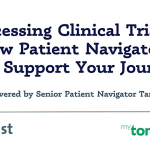For Childhood Cancer Awareness Month we are taking a closer look at the BRAINatomy study, which aims to change outcomes for children diagnosed with a brain tumour and their families for the better. Headed by the University of Manchester in collaboration with the St Jude Children’s Research Hospital (USA) and the University of Groningen (Netherlands), this ground-breaking study is led by Dr. Martin McCabe and Professor Tom Merchant, and aims to enhance brain tumour treatments for children by pinpointing specific brain regions to avoid during radiotherapy. Supported by Stand Up to Cancer and Cancer Research UK, this project is not only delving into the scientific intricacies of brain anatomy but is also incorporating patient involvement and engagement, provided by our PRIME service.
The Work Packages
The success of the BRAINatomy study lies in its well-structured work packages, each playing a vital role in unravelling the complexities of how brain radiotherapy impacts children. In a recent interview with the work package leads, the depth and breadth of the research became evident. Watch the video below features the interviews to find out more about the work packages.
Additionally, the collaboration between the three centres — Manchester, St Jude, and Groningen — brings together a diverse range of expertise. Professionals from various disciplines, including physics, neurosurgery, and medical oncology, join forces to tackle the multifaceted challenges posed by paediatric brain tumours.
What’s next?
As the BRAINatomy project progresses, it holds the promise of transforming the landscape of paediatric brain tumour treatments. The researchers’ ultimate goal is to identify brain regions sensitive to radiotherapy, enabling the development of tailored treatments that mitigate long-term cognitive and endocrine issues. The potential creation of a prediction model could revolutionize decision-making for clinicians, offering a tool to optimize survival while minimizing adverse effects.
The BRAINatomy project, with its intricate work packages and collaborative structure, could have profound implications for the well-being of children affected by brain tumours. The dedication of the research team, coupled with the support from charities and funding entities, underscores the importance of concerted efforts in advancing our understanding of paediatric brain cancer and improving treatment outcomes. As the project unfolds, it holds the promise of shaping the future of paediatric oncology, offering hope to countless children and their families worldwide.
To read our previous article about the project, click here.
Want to receive all the latest research straight to your inbox?
Sign-up our curated, jargon-free weekly research newsletter. Click here to fill out our contact form and select ‘research’ to opt into our research newsletter.
Get involved with research…
If you would like to use your experience and insight to support clinical research, consider signing up to be a PRIME advocate for brainstrust.
If you or someone you love is living with a brain tumour and have any questions around this latest news, or want to access support, give us a call on 01983 292 405 or email hello@brainstrust.org.uk. You can also visit our little brainstrust website which features support for children affected by brain tumour.








